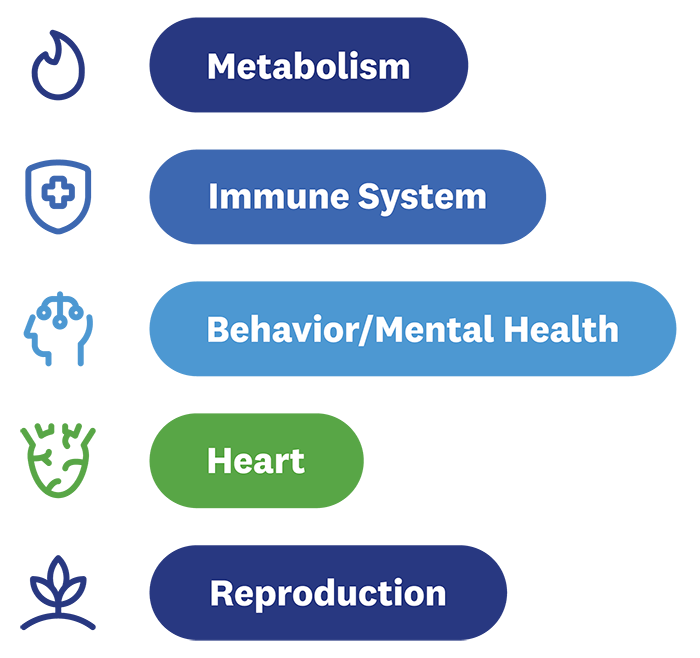Long-term impacts
Experiencing chronic stress – sustained stress over a long period of time – can cause harm to your body and decrease your quality of life.

These impacts include:
- Metabolism - Increased blood sugar
- Immune System - Increased inflammation (arthritis, etc.), increased chances for illness and disease, slower healing for wounds
- Behavior/Mental Health - Depression, anger, anxiety, addiction
- Heart - Increased blood pressure/hypertension, vascular disease, coronary artery disease, heart disease
- Reproduction - Decreased libido/sex drive, infertility
Long-term investments
You don’t have to take on chronic stress alone. Invest in a healthy future by:
- Talking to your doctor about your experience of stress and what support might best fit your needs
- Seeking support healing from previous trauma
- Meeting with counselors, therapists, or other trained professionals to develop your approach
- Exploring what preventative resources are covered by your insurance
- Making environmental and lifestyle changes to decrease exposure to stressors
Find support for your long-term stress management needs.



